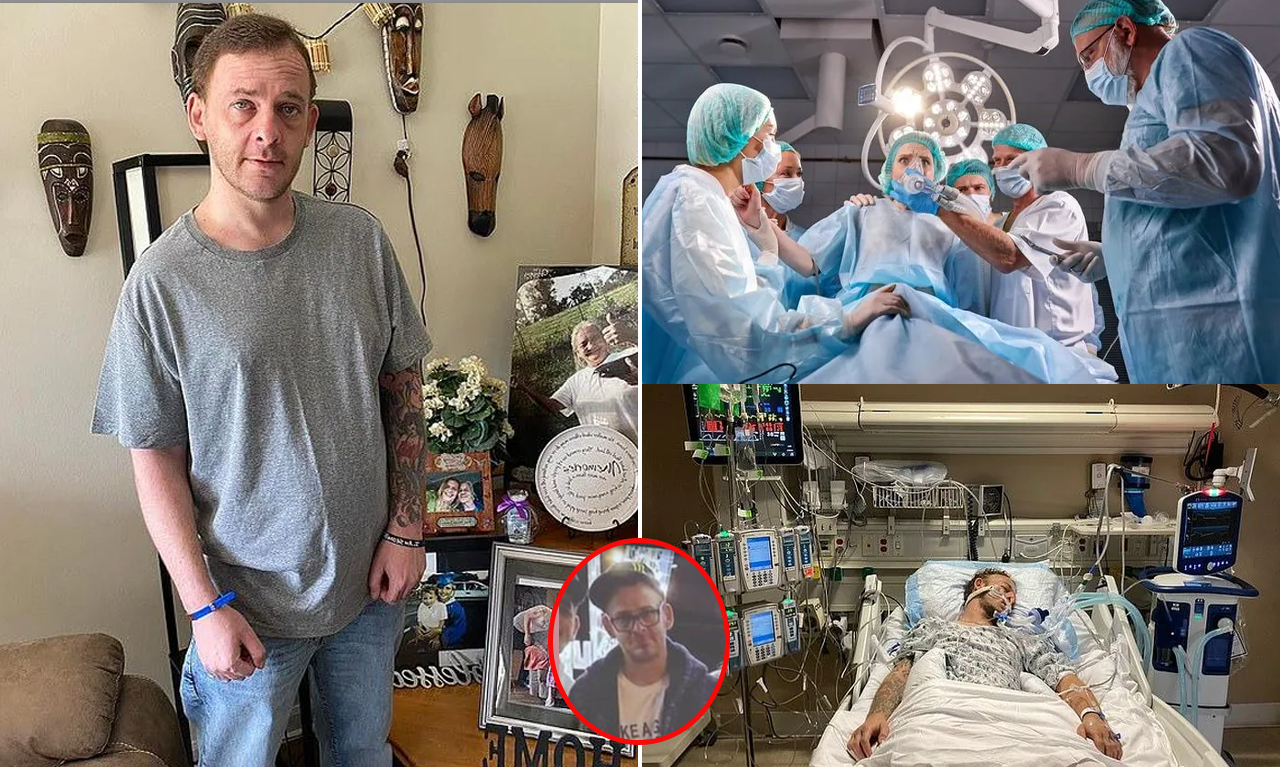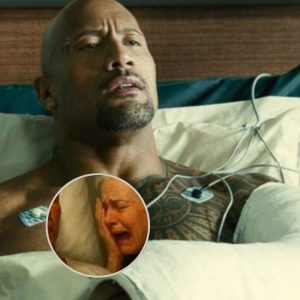An extremely rare incident was recently reported at the hearing of the US Committee on Energy and Commerce on the organ transplant coordination system in this country. Accordingly, a former technician who worked for the Kentucky Organ Donation Branch (KODA) denounced some irresponsible doctors leading to very serious consequences.
The incident involved a 33-year-old man who was diagnosed as brain dead, but then suddenly woke up in the operating room, as doctors prepared to cut open his body to remove his organs, thinking the man was actually dead.

Illustration photo.
“ But he woke up, moved on the operating table, and struggled ,” said Natasha Miller, a former organ preservation technician at KODA who filed the complaint with the U.S. Energy and Commerce Committee.
” And as you got closer, you could see a tear running down his face. He was clearly crying.”
What could be more horrible than waking up to find your body being cut open to harvest your organs?
The shocking incident occurred at Baptist Health Hospital in Richmond, Kentucky, in October 2021, but it has only now come to public attention. That’s because KODA officials have sought to play down the media coverage, according to another witness, Nyckoletta Martin.
Like Miller, Martin was also an organ transplant technician who worked at the Kentucky Organ Donation Branch. Martin was not assigned to the operating room that day, but her instinct told her to read the patient’s file inside.
The patient’s identity was kept secret, and Martin found only records stating that the 33-year-old man was brain dead. But that morning, while he was undergoing a cardiac catheterization — a procedure that involves assessing whether a heart is healthy enough to be donated — the patient woke up.
Cardiac catheterization requires doctors to thread a hollow tube (catheter) into an artery or vein in the groin, neck, or arm; thread it through the blood vessels and all the way to the patient’s heart.
“ The donor woke up during the catheterization procedure that morning. And he was kicking around on the operating table ,” Martin said. But doctors re-anesthetized him and continued the procedure until the end.

Illustration photo.
In the afternoon, when the organ donation surgery was officially performed, the anesthetic wore off and the man regained consciousness again. Miller, the first witness to the incident who was present in the operating room, recounted:
“It was chaos. The patient was moving and thrashing. The doctors were panicking. They all wanted to stop the procedure: ‘I’m not going to do this anymore. I don’t want to be involved in this,'” the surgeon said.
But Miller added that she heard a transplant coordinator at KODA call her supervisor. The supervisor then asked her to find another doctor to continue harvesting the man’s organs. The supervisor yelled into the phone, causing the transplant coordinator to cry.
Patient’s identity revealed
In an interview last week with National Public Radio (NPR), a woman named Donna Rhorer, who lives in Richmond, Kentucky, admitted that her brother, Anthony Thomas “TJ” Hoover II, was the victim of this incident.

Anthony Thomas “TJ” Hoover II, (center) was the victim of this incident.
She said TJ was rushed to Baptist Health Hospital after an overdose. Doctors told Rhorer and her family that her brother had gone into cardiac arrest and was brain dead, with no brain waves.
TJ’s bodily functions are being maintained only by a heart-lung machine. The family should decide when to take TJ off the ventilator, and they say medical databases show that TJ has registered to be an organ donor after death.
The family then decided to let him go peacefully. Baptist Health Hospital held a ceremony in TJ’s honor before they moved him from the intensive care unit to the endocrine room to determine which of his organs were still viable for donation.
In that moment, Rhorer said she seemed to see her brother open his eyes, looking around at everyone. ” It was like he was telling us, ‘Sister, I’m still here,’ ” Rhorer said.
However, doctors later said that what Rhorer and his family saw were normal reflexes of a brain-dead patient. It was only when TJ actually woke up on the operating table, crying and struggling that the doctors began to panic and stopped the surgery.
The moment patient TJ was taken from the intensive care unit into the operating room for organ harvesting
Fortunately, TJ’s body had not been cut open to remove any organs. But the incident shocked not only the family but also the medical staff at Baptist Health and the Kentucky Organ Donation Branch, including Martin, who later resigned.
” I have dedicated my life to organ donation and transplantation. It is terrifying to me that these things are allowed to happen without any measures in place to protect the donors ,” Martin said.
” It’s everyone’s worst nightmare, right? Waking up on an operating table and knowing someone’s going to cut you open and take out your organs? It’s horrible.”
“After that incident, I and some of the medical staff had to go to therapy. It had a big impact on a lot of people, especially me ,” Martin told NPR.
Undermining faith in the noble act of organ donation
Responding to NPR’s request for comment, the Kentucky Attorney General’s Office said its investigators are “looking into” the allegations. The federal Health Resources and Services Administration (HRSA), which oversees organ harvesting, also said it is ” investigating allegations ” related to the Kentucky incident.
Baptist Health Richmond Hospital, where the incident is believed to have occurred, said in a statement: “Patient safety is always our top priority. We work closely with patients and their families to ensure that the patient’s wishes for organ donation are followed.”

TJ while in the intensive care unit at Baptist Health Hospital.
For its part, the Kentucky Organ Donation Association (KODA) acknowledged Miller’s presence in the operating room on the day of the incident. However, they said ” the incident has not been accurately presented.”
“ No one at KODA has ever been forced to harvest organs from any living patient ,” said Julie Bergin, a representative for the organization. “ KODA does not harvest organs from living patients. KODA has never pressured team members to do so.”
Organ procurement officials, transplant surgeons and others say strict procedures are in place to prevent incidents like this from happening.
” Incidents like this are troubling. And we want them to be thoroughly reported and evaluated ,” Dorrie Dils, president of the Association of Organ Procurement Organizations, told NPR in an interview. “And obviously we want to make sure that the patient was actually dead when the donation was made. We want the public to have confidence that that actually happened. This process is incredibly sacred.”
Still, Dils said that immediately after allegations about the Kentucky incident emerged in a US congressional hearing last month, the number of people registering to donate organs in the United States dropped.

Baptist Health Hospital, where the incident occurred.
Many fear these reports could undermine the national organ transplant system in the United States. “ This is a horrifying story. I think it needs to be carefully monitored ,” said Dr. Robert Truog, professor of medical ethics, anesthesiology and pediatrics at Harvard Medical School.
“ But I really don’t want the public to believe that this is a serious problem. I believe that these are just isolated cases, which hopefully we will be able to clarify and prevent so that they never happen again ,” said Dr. Truong.
However, something similar happened.
Some critics of the U.S. organ procurement system say they are not surprised by the allegations. With more than 103,000 people on the transplant waiting list, organ procurement organizations are under intense pressure to increase the number of organs they obtain to save more lives.
Additionally, there is ongoing debate within the medical community about when and how to declare a patient dead.
“ I just hope cases like this are extremely rare, but it does reveal some of the potential issues that can arise when there is disagreement about how to define death ,” said Dr. Matthew DeCamp, an associate professor of medicine and bioethicist at the University of Colorado.
But some people wonder if this is too rare?

Although JT has returned to life, his health and spirit are still affected after 3 years of events.
“This does not appear to be an isolated incident, it does not appear to be a single bad apple ,” said Greg Segal, who runs the organ transplant watchdog organization Organize. “ I get allegations like this with alarming frequency.”
Similarly, Thaddeus Pope, a lawyer and bioethicist at Mitchell Hamline Law School in Saint Paul, said: ” This is not an isolated case. There have been similar allegations in the past.”
One such case was described by Dr. Robert Cannon, a transplant surgeon at the University of Alabama at Birmingham. During testimony last month, Dr. Cannon described a similar incident that occurred at a hospital outside Alabama.
” We were actually in the operating room. We had opened the patient up and were in the process of getting the person’s organs ready, and at that point the ventilator kicked in and the anesthesiologist at the head of the table spoke up and said, ‘Hey, I think this patient just breathed,'” Cannon told NPR in a later interview.

TJ at his sister Donna Rhorer’s wedding.
” If the patient is breathing, that means they are not brain dead .” A representative of the OPO, the organ harvesting organization in the US, said they still wanted to continue with the organ harvesting operation. But Dr. Cannon said he refused:
“ We were really shocked that someone from the OPO had so little knowledge of what brain death meant that they said, ‘Oh, go ahead.’ And we thought, ‘No. We’re not going to risk killing a patient.’ Because that’s exactly what would happen if the patient were alive.”
For their part, TJ’s family said that since he woke up, his health has not returned to normal. Donna Rhorer, TJ’s biological sister and guardian, said that her brother often suffers from psychological trauma after the failed organ donation.
“ He was always like, ‘Why me? Why would they want my organs? ’” Rhorer said. There were other times when TJ felt guilty that he didn’t die so people could get his organs and live.
” Seeing my brother like that really made me angry ,” Rhorer added. She wanted to go public with her story in the hope that it might “help another family have the courage to speak up or save another life.”
“I felt betrayed by the people who told us he was brain dead, and then he woke up. They’re trying to play God. You know, they’re almost choosing – they’re going to take this person to save that person. And then you lose a little bit of faith in humanity.”






